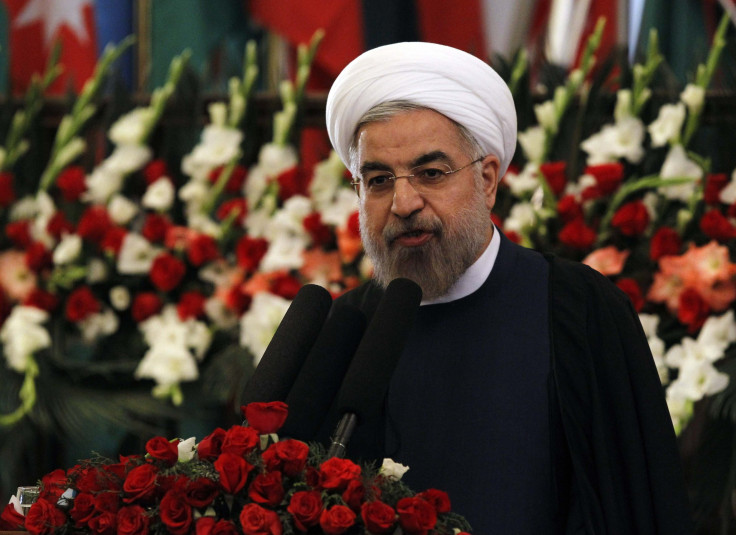Iran Names Hamid Aboutalebi, Linked To 1979 Tehran US Embassy Takeover, As UN Ambassador

Iran has named a member of the group that held 52 Americans hostage in Tehran for 444 days to be its next ambassador to the United Nations.
The government has applied for a U.S. visa for Hamid Aboutalebi, who has already served as ambassador to Belgium and Italy, Bloomberg reported Saturday. He was a member of the Muslim Students Following the Imam’s Line (referring to the Ayatollah Ruhollah Khomeini), the group that seized the U.S. Embassy on Nov. 4, 1979, and held American staff hostage until Ronald Reagan’s inauguration in 1981.
Relations between the Islamic Republic and the U.S. and its allies are just beginning to emerge from the deep freeze that has prevailed ever since. The State Department hasn’t responded to the visa application, an Iranian diplomat told Bloomberg.
A controversy over Aboutalebi’s appointment could spark demands in Congress and beyond during this congressional election year for the Obama administration to take the unusual step of denying a visa to an official posted to the U.N. It also could hamper progress toward a comprehensive agreement to curb Iran’s nuclear program, which the U.S. and five other world powers are seeking to negotiate with Iran by July 20.
Iranian President Hassan Rouhani chose Aboutalebi to serve at the U.N. after the interim nuclear deal was forged last Nov. 24.
“There’ll not be any rapprochement with Iran until hostages are compensated for their torture,” Tom Lankford, an Alexandria, Va., lawyer who’s been trying to win compensation for the hostages since 2000, told Bloomberg. “It’s important that no state sponsor of terror can avoid paying for acts of terror.”
Anyone connected with the hostage-takers shouldn’t get a U.S. visa, said a former hostage and U.S. diplomat. He requested anonymity to avoid renewed attention.
Aboutalebi has said he didn’t take part in the initial occupation of the embassy, and acted as translator and negotiator, according to an interview he gave to Khabaronline, an Iranian news site.
“On a few other occasions, when they needed to translate something in relation with their contacts with other countries, I translated their material into English or French,” he said, according to Khabaronline. “I did the translation during a press conference when the female and black staffers of the embassy were released, and it was purely based on humanitarian motivations.”
Meanwhile, the nuclear talks in Geneva between Iran and the West seemed to be faltering.
Foreign ministers struggled Saturday to nail down the landmark nuclear deal with Iran, with U.S. Secretary of State John Kerry announcing his imminent departure and Iran's chief negotiator downbeat, the New Straits Times of Singapore reported.
As the talks in Geneva went late into an unscheduled fourth day, Kerry's spokesman said he would be flying to London Sunday morning -- presumably with or without a deal.
Iranian chief negotiator Abbas Araqchi said he doubted that Tehran and the P5+1 world powers -- the United States, Britain, France, China, Russia and Germany -- could reach an accord by the end of Saturday.
"Intense and difficult negotiations are under way and it is not clear whether we can reach an agreement tonight," Fars news agency quoted Araqchi as saying.
The talks, mostly between Iranian Foreign Minister Mohammad Javad Zarif and P5+1 chief negotiator Catherine Ashton, are aimed at securing a freeze on parts of Iran's nuclear program in return for limited sanctions relief.
The arrival of Kerry and other P5+1 foreign ministers late Friday and on Saturday had raised hopes, after three long days of intense negotiations among lower-level officials, that a breakthrough was in sight.
© Copyright IBTimes 2025. All rights reserved.





















